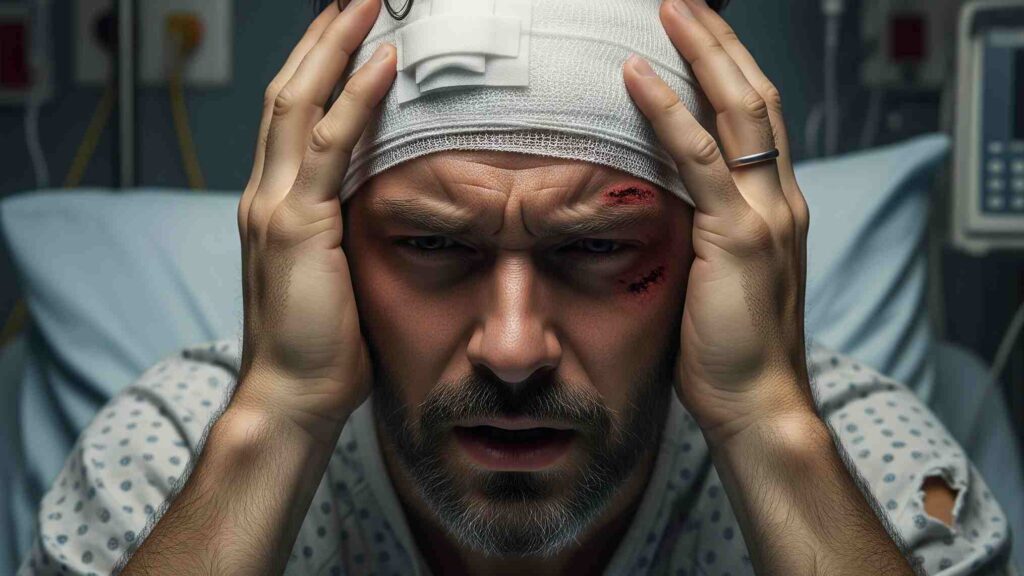Car accidents, even minor ones, can have a lasting impact on your body and mind. The sudden jolt of a crash can affect your brain and nervous system in ways that aren’t always obvious right away. Common neurological symptoms like concussion, whiplash, numbness, dizziness, headaches, memory loss, and balance issues can show up hours, days, or even weeks after the incident. These symptoms can range from mild annoyances to serious issues that need prompt attention.
The moments after a car accident can be chaotic, and adrenaline often masks pain or discomfort. You might walk away thinking you’re fine, only to notice symptoms later when the shock wears off. Neurological symptoms are especially tricky because they don’t always show up as visible injuries. For example, you might feel foggy, struggle to focus, or have trouble keeping your balance. These could point to something more serious than just “feeling off.” Understanding what to look for and acting quickly can prevent small issues from becoming bigger problems.
Our clinic understands how overwhelming it can be to navigate these challenges. We’re here to help you recognize the symptoms, seek the right care, and get back to feeling like yourself. This article will guide you through the key symptoms to watch for, explain why they happen, and offer practical steps for recovery. Whether you’re dealing with a mild headache or more concerning symptoms like memory loss, we’re here to provide resources and support to help you through the healing process.
Early Signs and Risks of Brain Injury
A concussion is one of the most common injuries after a car accident. It happens when your brain gets jostled inside your skull due to a sudden impact. You don’t always need to hit your head to get a concussion. A quick stop or jolt can be enough. Symptoms might include feeling foggy, having trouble focusing, or feeling unusually tired. You might also notice sensitivity to light or noise, nausea, or trouble sleeping.
Other symptoms of a brain injury can include:
- Persistent headaches that don’t go away with rest or over-the-counter medications
- Confusion or feeling “out of it”
- Trouble remembering things that happened before or after the accident
- Mood changes, like feeling irritable or sad for no clear reason
Catching these symptoms early is crucial. A concussion might seem minor, but ignoring it can lead to bigger problems, like prolonged recovery or even permanent damage. If you feel off after an accident, don’t ignore it. Keep track of how you’re feeling and talk to a doctor if symptoms last more than a day or two.
Understanding Whiplash and Nerve Impact
Whiplash happens when your neck gets whipped back and forth, often in rear-end collisions. It’s not just a sore neck. It can affect your nerves and muscles, causing a range of symptoms. You might feel stiffness, pain when moving your head, or even tingling in your arms or hands. In some cases, whiplash can irritate or damage nerves, leading to numbness in your fingers, arms, or shoulders.
This numbness comes from the strain on your neck’s nerves and muscles. The sudden movement can pinch or inflame nerves, causing them to send abnormal signals to your brain. You might also feel:
- A burning or prickling sensation in your limbs
- Weakness in your arms or hands
- Pain that radiates from your neck to other areas
Whiplash doesn’t always show up right away, so pay attention to how your body feels in the days after an accident. Gentle stretching and rest can help mild cases, but if numbness or pain sticks around, it’s time to see a doctor.
Memory Loss and Cognitive Effects After Trauma
Car accidents can affect more than just your body. They can impact how your brain works too. Memory loss is a common issue after a head injury or severe whiplash. You might forget details about the accident, struggle to remember names or tasks, or feel like your thoughts are slower than usual. This can be scary, but it’s often temporary with the right care.
Memory problems can show up in different ways:
- Forgetting conversations or events from the day
- Trouble concentrating on work or daily tasks
- Feeling confused when trying to follow instructions
These issues often tie back to a concussion or other brain injury. The brain needs time and rest to heal, but pushing through without help can make things worse. If you notice memory issues lasting more than a few days, it’s a sign to get professional advice.
When to Consult a Neurologist
If you’re dealing with symptoms like dizziness or balance issues after an accident, it’s a good idea to see a neurologist. Dizziness can make you feel unsteady or like the room is spinning, while balance problems might make walking or standing feel off. These symptoms can point to a concussion, inner ear damage, or nerve issues from whiplash.
A neurologist can run tests to figure out what’s going on. They might check your coordination, reflexes, or memory with simple exercises. In some cases, they’ll recommend imaging tests like an MRI or CT scan to look at your brain or neck. Here’s when you should make an appointment:
- Symptoms like dizziness, numbness, or memory loss last more than a few days
- You have severe headaches that get worse or don’t improve
- You feel unsteady or have trouble walking without tripping
Don’t wait for symptoms to “go away on their own.” A neurologist can help you understand your condition and create a plan to recover. At our clinic, we can connect you with trusted specialists to get you back on track.
Managing and Recovering from Neurological Symptoms

Dealing with neurological symptoms after an accident can feel overwhelming, but there are ways to manage and recover. Treatment depends on the symptoms and their cause, but here are some common approaches:
- Rest and Recovery. For a concussion, rest is key. This means limiting screen time, avoiding loud noises, and giving your brain a break from demanding tasks.
- Physical Therapy. For whiplash or balance issues, a physical therapist can guide you through exercises to strengthen your neck or improve coordination.
- Medication. If you’re struggling with headache pain, a doctor might suggest over-the-counter pain relievers or, in some cases, prescription medications for severe symptoms.
- Cognitive Therapy. If memory loss or concentration problems persist, a therapist can help you rebuild those skills with targeted exercises.
Rehabilitation takes time, so be patient with yourself. Follow your doctor’s advice and avoid rushing back to normal activities too soon. Small steps, like short walks or light stretching, can help you ease back into your routine without overloading your system.
At our clinic, we offer resources and support to help you through recovery. Whether it’s recommending trusted therapists or providing tools to track your symptoms, we’re here to make the process easier.
Preventing Long-Term Neurological Damage
Taking care of yourself after an accident can prevent minor issues from turning into chronic problems. Here are some practical tips to protect your brain and nerves in the long run:
- Follow Medical Advice. Stick to the treatment plan your doctor or neurologist gives you. Skipping appointments or ignoring symptoms can lead to worse outcomes.
- Monitor Symptoms. Keep a journal of how you feel each day. Note any changes in headaches, dizziness, or memory issues to share with your doctor.
- Stay Active Safely. Gentle exercise, like walking or yoga, can improve blood flow and help with recovery. Avoid high-impact activities until you’re cleared by a professional.
- Protect Your Neck and Head. If you’re returning to driving or sports, make sure you’re using proper safety gear, like seatbelts or helmets, to avoid new injuries.
- Manage Stress. Stress can make symptoms like headaches or dizziness worse. Try relaxation techniques like deep breathing or meditation to stay calm.
Long-term damage isn’t always obvious right after an accident. For example, untreated whiplash can lead to chronic neck pain, or an ignored concussion might cause ongoing memory problems. By staying proactive, you can lower the risk of these issues becoming permanent.
At our clinic, we’re committed to helping you stay healthy after an accident. We can provide tools like symptom trackers, connect you with specialists, or offer advice on safe ways to stay active. Your recovery matters, and we’re here to support you every step of the way.In summary, car accidents can lead to neurological symptoms like concussion, whiplash, numbness, dizziness, headaches, memory loss, and balance issues. Recognizing these symptoms early, seeking professional help, and following a recovery plan can make all the difference. With the right care, you can manage symptoms, avoid long-term damage, and get back to feeling like yourself. If you’re dealing with any of these issues, visit our clinic for resources and guidance to support your healing journey.
